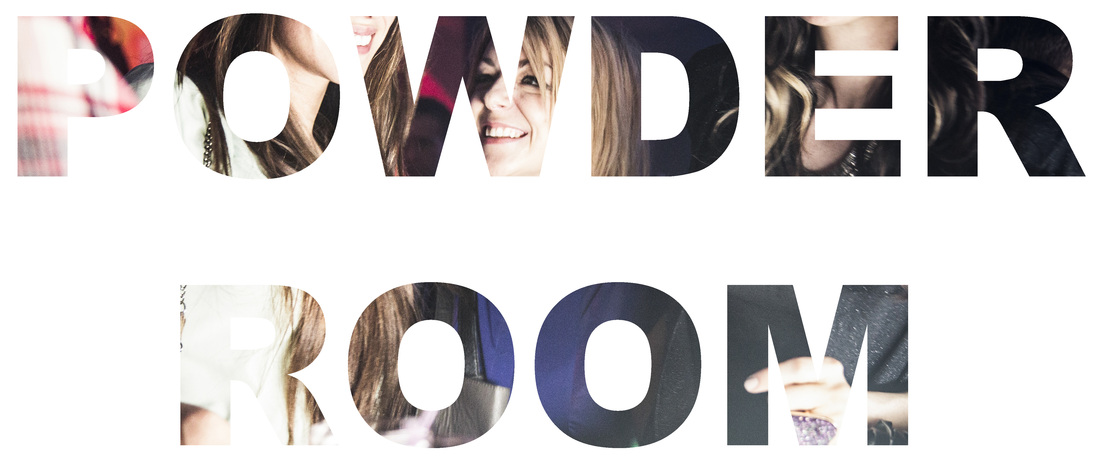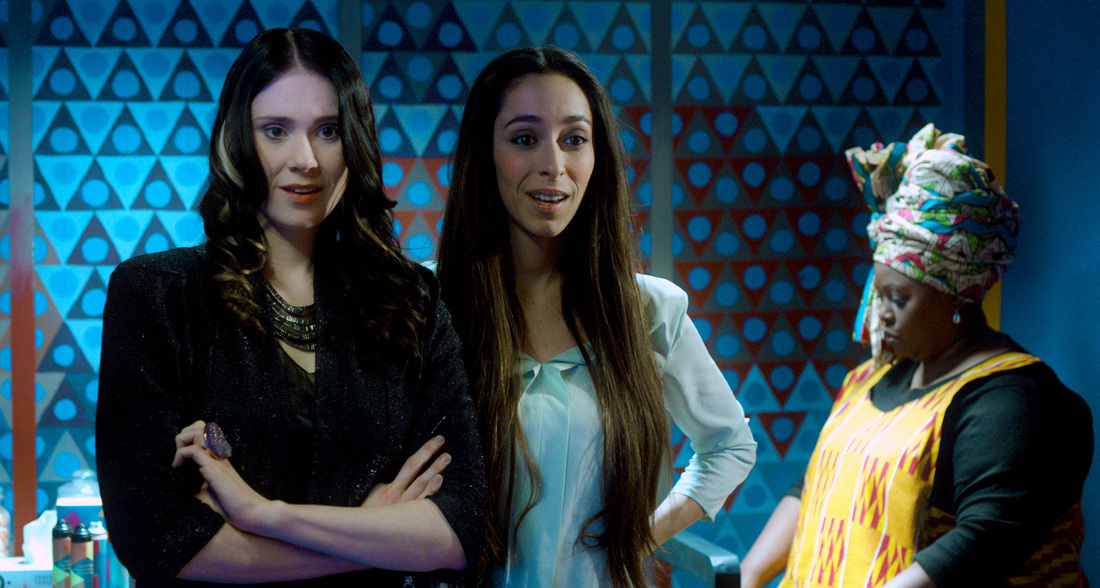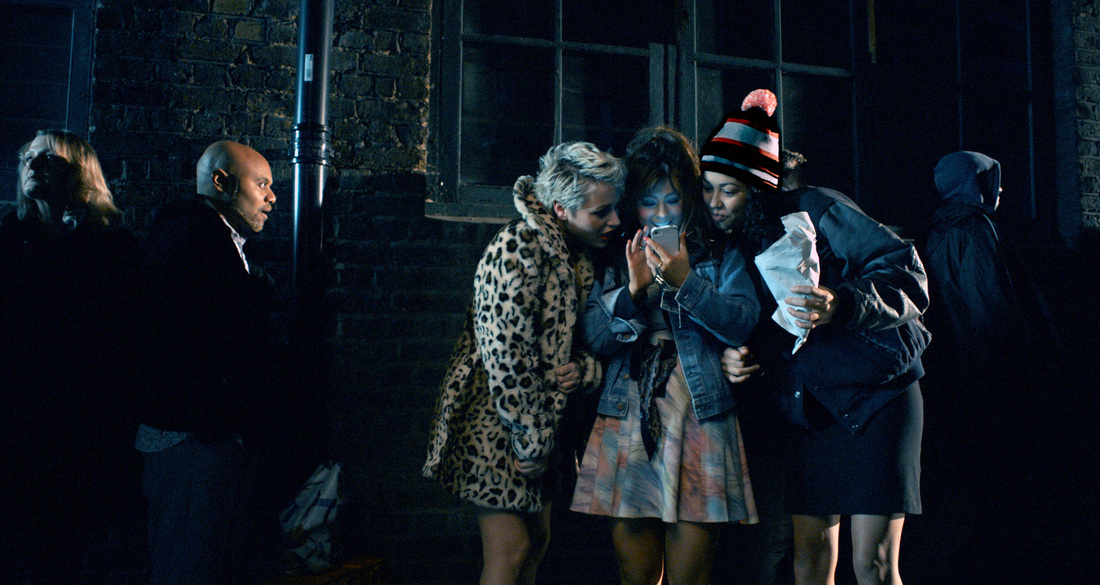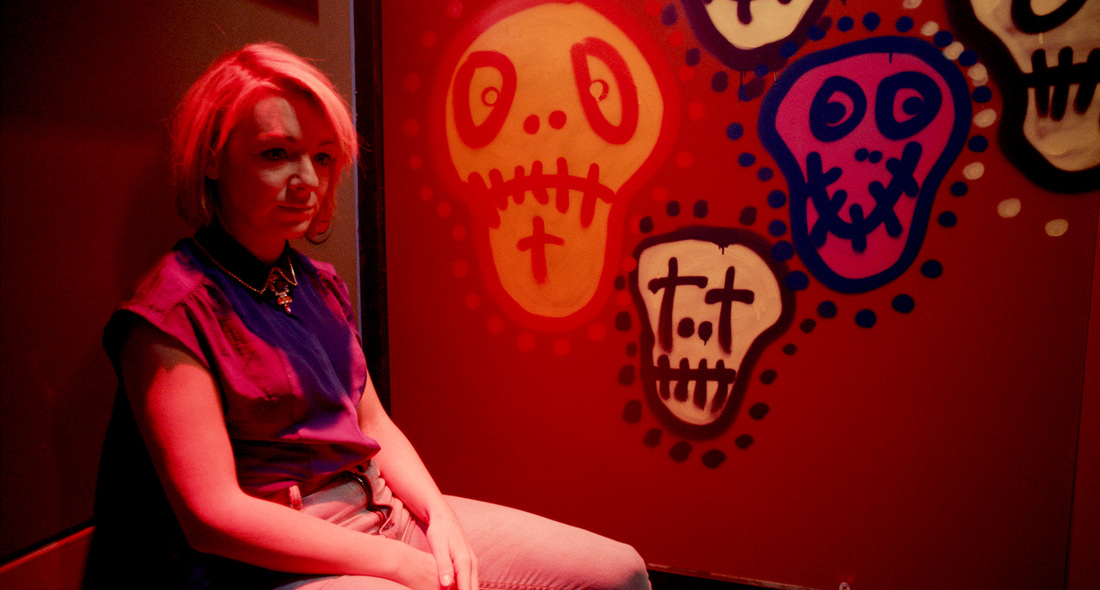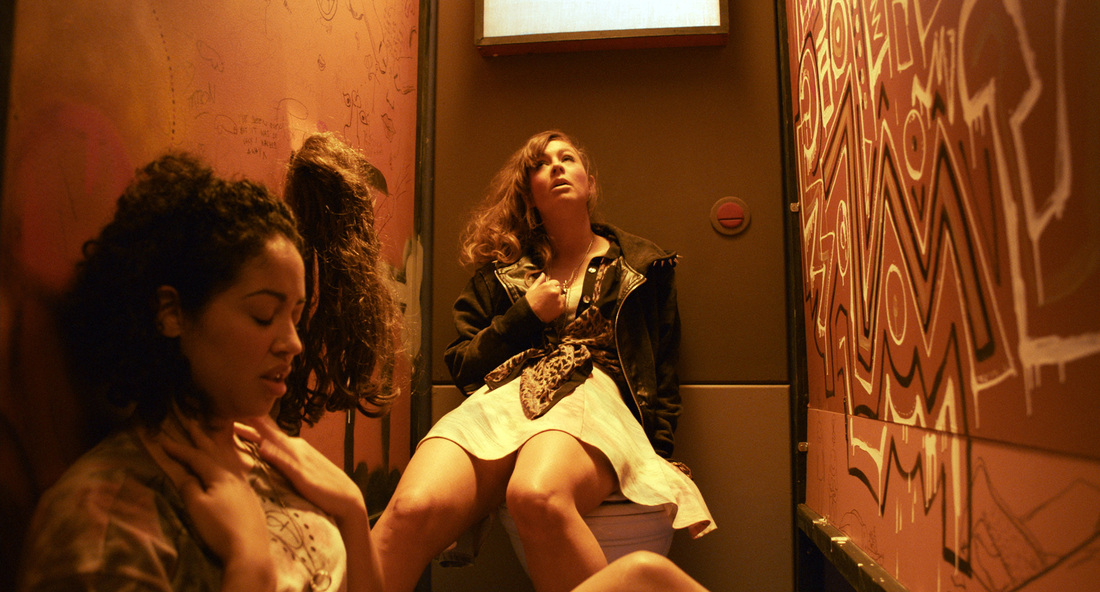|
How entertaining? ★★★☆☆
Thought provoking? ★★☆☆☆ 24 November 2013
This article is a review of POWDER ROOM.
|
“It all went a bit Adele, I don’t think it’s going to work out,” Chanel (Jaime Winstone)
Based on the play ‘When Women Wee’, and begins on such a scene. Chanel caught short outside a club. Even in the heyday of so-called Brit ladette culture in the 1990s, cinema never was so forthright. The tasteless (but seriously well edited) PROJECT X showed such a scene last year. Don’t let this put you off POWDER ROOM. We are not in exploitation territory. This is a film written, directed and starring women about the quarter life crisis of Sam (Sheridan Smith), coming to a head on a night out. One doesn’t envy the marketeers on promotion duties. The scenes and dialogue in the trailer are necessary to showcase the energy, while counter-intuitively the most effective moments are the unshowy conversational ones.
Like BRIDESMAIDS, POWDER ROOM uses a subgenre (here the crazily event-filled evening) to explore female friendship and a bottoming out of self-confidence. Similarities may be drawn between Kristen Wiig’s lead in the wedding flick and Smith’s. There are so many works about the male self-destructive personal plight (from THE CATCHER IN THE RYE and THE SQUID AND THE WHALE to THE WEATHER MAN and ABOUT SCHMIDT); it is refreshing that women are at last being given the same quandaries and charismatic protagonists (see also YOUNG ADULT).
Based on the play ‘When Women Wee’, and begins on such a scene. Chanel caught short outside a club. Even in the heyday of so-called Brit ladette culture in the 1990s, cinema never was so forthright. The tasteless (but seriously well edited) PROJECT X showed such a scene last year. Don’t let this put you off POWDER ROOM. We are not in exploitation territory. This is a film written, directed and starring women about the quarter life crisis of Sam (Sheridan Smith), coming to a head on a night out. One doesn’t envy the marketeers on promotion duties. The scenes and dialogue in the trailer are necessary to showcase the energy, while counter-intuitively the most effective moments are the unshowy conversational ones.
Like BRIDESMAIDS, POWDER ROOM uses a subgenre (here the crazily event-filled evening) to explore female friendship and a bottoming out of self-confidence. Similarities may be drawn between Kristen Wiig’s lead in the wedding flick and Smith’s. There are so many works about the male self-destructive personal plight (from THE CATCHER IN THE RYE and THE SQUID AND THE WHALE to THE WEATHER MAN and ABOUT SCHMIDT); it is refreshing that women are at last being given the same quandaries and charismatic protagonists (see also YOUNG ADULT).
|
|
|
On the way to the club, the audience is introduced to Sam’s friends. At last, a movie that acknowledges we have different sets from the various aspects of our lives (school, university, work, hobbies, etc.). The main crux of the drama is that Sam does not want the two groups to meet. She is meant to be on a night out with Michelle (singer Kate Nash), who has brought along Jess (Oona Chaplin – GAME OF THRONES). Sam is in major self-preservation mode. Thanks to Facebook status updates from Michelle, Sam’s already prevalent insecurities have deepened. Michelle and Jess are leggy Parisian inhabitants, towering over the lead, in Britain for a weekend away. Jess is married with a child, and Michelle has just got engaged. Both are successful. Sam feels the need to lie about her job and relationship status (the tension of maintaining the fibs is ever present, as we all know they are going to come back to bite her). Our heroine is so wounded from disappointments (while continually maintaining a cheery disposition), she cannot see Michelle and Jess for the obnoxious snobs they are (and having their own vulnerabilities).
Meanwhile boisterous mates from the less salubrious side of the tracks rock up: Bolshy sisters Chanel and Saskia (Sarah Hoare), and Paige (Riann Steele). Each have their own issues, but are friends that genuinely have Sam’s back – something she has forgotten in the mini-maelstrom of her existence, thanks in part also to their embarrassing hedonistic tendencies. Over three locations – the main room, the ladies toilet and the outside smoking area – a picture is slowly painted of Sam’s profound unhappiness, told with regular bouts of awkward humour. Humiliation is the weapon wielded to cut the protagonists down. POWDER ROOM asks the audience how are we meant to shield ourselves from such, and where defences have failed, how do we pick ourselves up? Thankfully easy answers and grand climaxes are avoided. Instead an offering of a first step is suggested: Know yourself, and then you can start to redress what has gone wrong.
The theatrical origins are not shaken, and the filmmakers attempt to inject gusto into the editing and camerawork to mixed results. The appeal of the actors and the banter/patter are enough. The trepidatious flirtatiousness, for instance, between Sam and a guy she meets (James – played by Micah Balfour), between puffing on cigarettes, is gently lovely. POWDER ROOM is not HUMAN TRAFFIC magnifique, but has hard-won charm.

